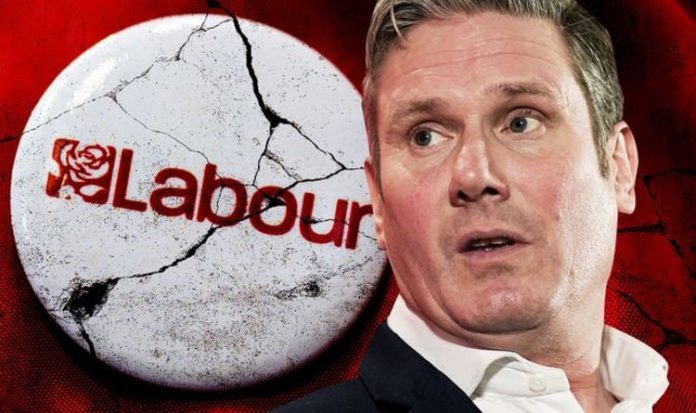It is coming up to a year since the Labour Party suffered its worst election defeat since 1935. Many reasons have been floated as to why this happened under former leader Jeremy Corbyn. Brexit was a huge factor and Mr Corbyn’s leapfrog policy on the historic vote put swathes of voters off, while his handling of antisemitism in the party also played a major role.
Others say what happened to the party last year is symptomatic of a wider trend that began decades ago and pushed Labour in a direction away from its roots and in the process away from its voter base.
The 2019 general election saw Labour lose its so-called “Red Wall” – a band of seats across the north of England, many of which had been Labour constituencies for decades.
Huge numbers of these safe seats fell to Boris Johnson’s Conservatives in what was a shock to both Labour and the Tories.
Yet Paul Embery, a trade unionist and “Blue Labour” member told Express.co.uk that this wasn’t at all something shocking, with the party having dug its own grave years before.
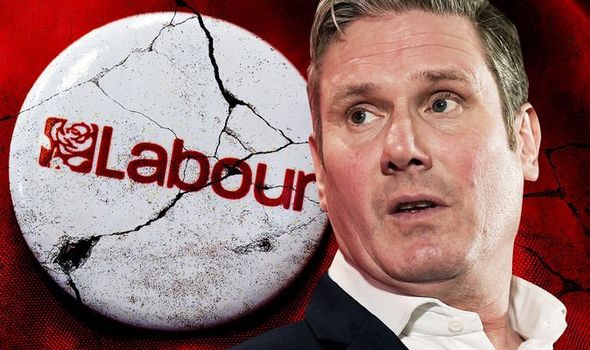
Keir Starmer: The Labour leader must win back the party’s working class, Paul Embery said (Image: GETTY)
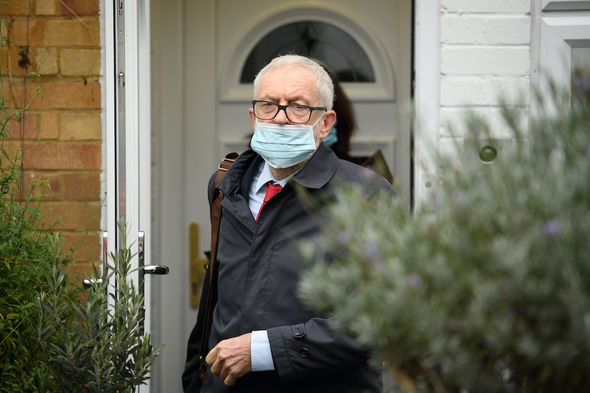
Jeremy Corbyn: The former leader led Labour to its worst election defeat since 1935 last year (Image: GETTY)
As he explained: “There were a number of reasons why Labour lost the election, namely Brexit and Corbyn’s unpopularity on the doorstep.
“But the rupture between working class communities, traditional Labour heartlands, and the Labour Party didn’t just occur with Corbyn’s leadership, it didn’t just occur with Brexit.
“This is a chasm that started in my view around about 30 years ago when Labour swallowed what I call a poisonous brew of economic and social liberalism.
“That disconnect has intensified over the last 15 years as a result, particularly the result of globalisation and under Tony Blair’s Government we really started to see the effects of globalisation in the kind of old industrial working class communities.
JUST IN: Keir Starmer faces revolt of 60 MP’s if he backs Brexit trade deal
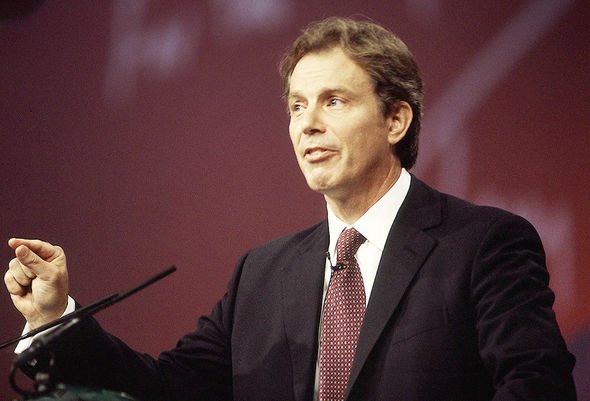
Tony Blair: Blair’s ‘New Labour’ movement appealed to swathes of middle class voters (Image: GETTY)
“We started seeing deindustrialisation, factories closing and shipping production abroad, we started to see the introduction of rapid demographic change.
“People in these communities looked to the Labour Party to defend them and actually, they saw a Labour Party that increasingly sneered at them and dismissed them as bigots and xenophobes and that type of thing.”
While this was happening, Labour’s appeal and voter base became more malleable, becoming more attractive to a new group of people.
As Mr Embery explained: “The Labour Party now is a much more middle class, much more metropolitan, London-centric party, made up largely of graduates and social activists and urban liberals.
DON’T MISS
Tory MP erupts at Labour for ‘diktat’ on Covid tier vote abstention [REPORT]
Gary Neville rages at Starmer for Labour vote abstention [INSIGHT]
Sadiq Khan’s record ripped apart as Mayor ‘cost taxpayers £5.2bn’ [ANALYSIS]
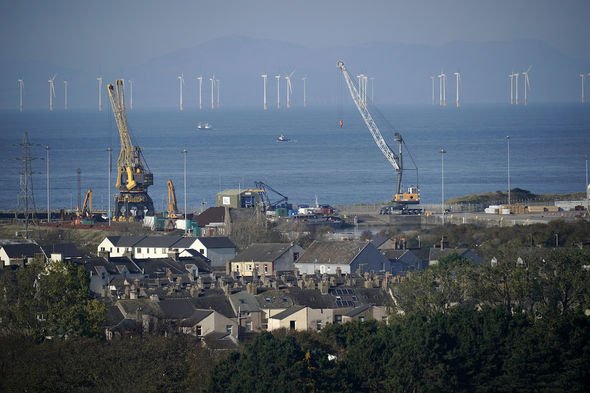
Working class: England’s Red Wall fell largely to the Tories in the 2019 election (Image: GETTY)
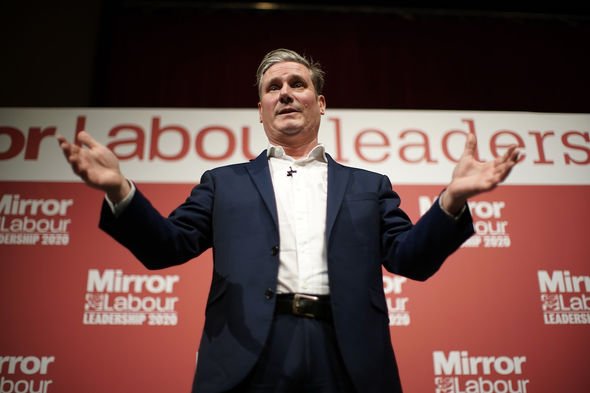
New management: Starmer has attempted to rebrand Labour as the patriotic party (Image: GETTY)
“And so I think that traditional working class Labour voters just looked at the party and thought ‘actually, you don’t represent me anymore; you don’t look like me anymore, you don’t sound like me, you sneer at me, you mock me’ – and all of those things combined, with Brexit, with Corbyn’s unpopularity, propelled Boris Johnson into Downing Street.”
Labour has, say Mr Embery and others, become embarrassed of things like patriotism and nationalism, something which has ostracised working class voters.
The party’s new leader, Sir Keir Starmer, has in recent months made moves to seal the cracks that became exposed after the general election.
Should Mr Embery’s analysis prove true, it appears the Labour leader has a far harder job than previously thought.
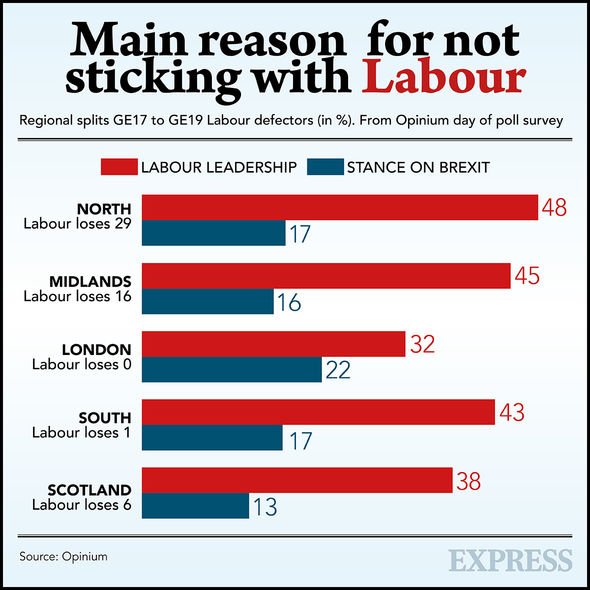
General election: The main reasons why voters left the Labour Party in 2019 (Image: Express Newspapers)
Sir Keir has worked towards establishing Labour as the patriotic party – something that hasn’t been seen since former leader Tony Blair and the Iraq War, and even then, nationalism was not such an overt agenda.
During his first speech to a Labour conference as party leader in September, Sir Keir told prospective voters: “I ask you: take another look at Labour. We’re under new leadership. We love this country as you do.”
And earlier this year, he said he wanted the party to be “proud of being patriotic”.
He has also made other more low key moves to reinforce his and Labour’s newfound sense of national pride; he appeared on the BBC’s Desert Island Discs last month and gave one of his favourite songs as ‘Three Lions’ by Baddiel, Skinner and The Lightning Seeds.
Mr Embery said while it is hard to say whether moves like this are “genuine”, he conceded that Sir Keir, on the topic of patriotism, is doing “the right thing”.
The opposition leader’s message of Labour being under “new management” certainly appears to have chimed with public opinion.
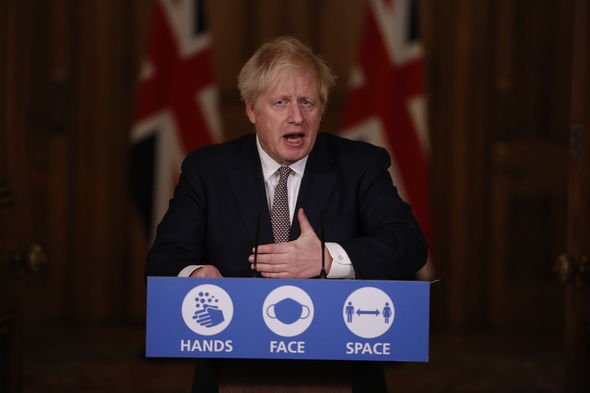
Boris Johnson: The PM’s approval ratings have plummeted in recent months (Image: GETTY)
According to the most recent YouGov polling data, should an election be called in the near future, 40 percent of voters would choose Labour, while 37 percent would give their vote to the Tories.
More telling are Sir Keir and Mr Johnson’s individual approval ratings.
While 45 percent of respondents think Sir Keir is doing well as opposition leader, holding the Government to account, just 34 percent of Britons think the Prime Minister is doing a good job – 58 percent saying he is fulfilling the role badly.
The coronavirus pandemic has undoubtedly added extra criticism to and pressure on Mr Johnson and his cabinet, something which might play into Sir Keir’s hands going forward.
